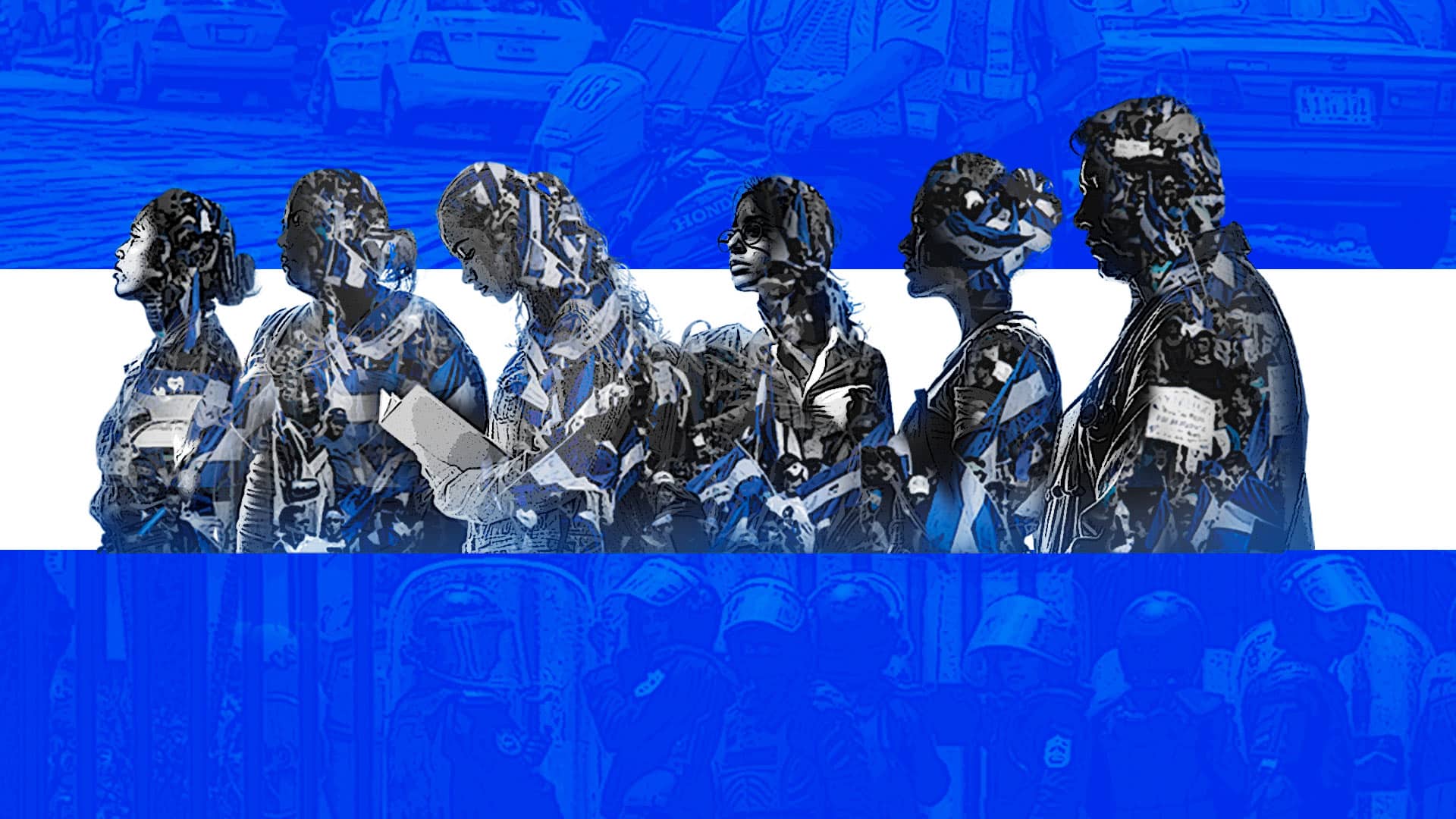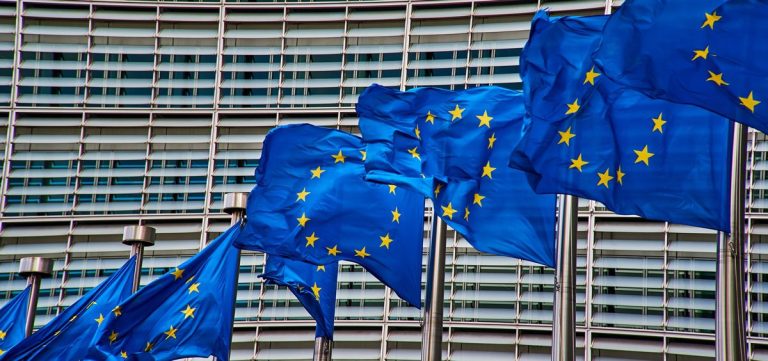5 de octubre 2022

Six Years With April in Tow: Life Under Nicaragua's New 'Normal'

PUBLICIDAD 1M
PUBLICIDAD 4D
PUBLICIDAD 5D
Proposal to suspend EU-Nicaragua trade relationship. US warns of possible expulsion of Nicaraguan ambassador as reciprocity.

La Unión Europea advirtió una respuesta “firme y proporcionada” a la escalada diplomática de régimen de Daniel Ortega.
The former member of the European Parliament, Ramón Jáuregui, says that although the European Union does not want to respond with a total break in relations with Managua —after the expulsion of the head of the European delegation in Nicaragua, Bettina Muscheidt, and the breaking of diplomatic relations with the Netherlands by Daniel Ortega’s regime— the exclusion of Nicaragua from the commercial agreements they maintain with Central America must be seriously considered.
For the Spanish politician, the European community has no choice but to think about closing down its association and trade agreement with Nicaragua.
“With such attitudes, the only thing that can be expected is a complete break. Honestly, I don’t think there is room for commercial transactions if you don't want to admit the diplomatic presence of the Netherlands, or Germany, or the European Union, or other countries. It should be the subject of very serious consideration,” the former legislator said.
Jáuregui got personally acquainted with the serious human rights situation in Nicaragua during 2019, when he went inside the El Chipote police jail and learned about the reality of the political prisoners there. He was able to verify the poor conditions in which the inmates were being held, which he described as medieval due to "the way of treating, imprisoning, mistreating and torturing people."
Ortega's measures against the European Union provoked repudiation and indignation on that continent. The High Representative of the European community, Josep Borrell, issued a statement in which the EU described the regime's actions as "unjustified" and "hostile" and announced that they were analyzing the way forward, but anticipated that the response would be "firm and proportionate" to the actions taken by the State of Nicaragua.
Read: EU urges Ortega regime to return sovereignty to the Nicaraguan people
In the last week, Ortega has delivered a series of escalated insults against distinguished members of the international community, such as Gabriel Boric, President of Chile; Brian Nichols, United States Assistant Secretary of State for Western Hemisphere Affairs of the United States; and the Secretary General of the United Nations, António Guterres. He also derided the Catholic Church, calling it a "perfect dictatorship".
In the official act to commemorate the 43rd anniversary of the Police, one of the main pillars of the de facto state in which the civil rights of Nicaraguans have been suspended since 2018, Ortega called the Chilean president, a leader of the democratic left, a "lap dog". He called Nichols a "bulldog" and "that black guy", and he called Guterres a "Yankee wimp."
"We’ve all stopped being shocked by this kind of thing from him [Ortega], because this ability to offend and insult with false rhetoric, loaded with lies about colonialism and national sovereignty, it’s all nonsense that gets puts out to hide internal tyranny," Jáuregui added, emphasizing that the regime has been left in the hands of Vladimir Putin and other dictators.
In addition to the insults, on Friday, September 30, the Nicaraguan government declared that the new US Ambassador, Hugo F. Rodríguez, confirmed by the US Senate for the post, was “non grata”.
Vice President Rosario Murillo said that Rodríguez would not be admitted under any circumstances, and Ortega backed her, comparing Rodríguez to William Walker, a figure in Nicaraguan history who was expelled in the national war in 1856 and who appointed himself president of Nicaragua and imposed English as the official language.
Eddy Acevedo, son of Nicaraguan parents and chief of staff and senior adviser at the Woodrow Wilson Center, said the United States must respond by expelling Nicaragua's ambassador to Washington, Francisco Campbell.
Political scientist Manuel Orozco, from the Inter-American Dialogue, added that "there is a great possibility that the United States adopts a policy of reciprocity against Nicaragua."
However, Orozco said that it should be kept in mind that the diplomatic presence of the United States in Nicaragua is also important for the regime because the Central American country has a strong commercial dependence on the United States: 60% of exports to the US come from US companies in the free trade zones. "Not recognizing the ambassador will have an effect on investment in the free trade zone," he said.
Orozco says that the uncertainty created by the dictatorship is consistent with "the Talibanization into which the regime has submerged Nicaragua, which includes repression, coercion and internal violence, criminalization of democracy and international isolation."
For his part, Acevedo believes that Ortega's insults show him to be fragile, without friends in the international community, and with notable fear of the vast majority of the Nicaraguan people who no longer support him.
“No one falls for his tricks anymore. This [speech] is the worst I have ever seen. Hopefully the international community will wake up and act. There has to be a regional strategy in Latin America, but also working closely with the European Union”, he suggested.
The former US ambassador to Panama, John Feeley, believes that outside of Nicaragua no one pays attention to Ortega's rhetoric, which only means "more suffering for its abused people."
Feeley considers it pure theater. “A dog that barks does not bite, and Ortega is too small to be able to bite the United States. But what he does do, like a mean-spirited bulldog in his little doghouse, is bite into the public treasury to enrich himself with public funds,” he said.
According to the former ambassador, the United States will respect Nicaragua's decision not to grant approval to Rodríguez, who, at the end of July, expressed to the Senate his commitment work for the return to democracy of the Central American country and the release of the prisoners of conscience.
Feeley added that the most interesting thing about Ortega's episode was to see how terrified he is, that he showed himself to be weak and fearful in his own labyrinth of isolation.
“It is unusual, but not unheard of, for a leader to speak like the mob in the street and not like a statesman. In my country, Donald Trump used to attack his political enemies with abuse and rhetorical insults. Sometimes the folks in the street laugh –-and of course paid henchmen immediately applaud, as befits their role as pawns –-but in general with these kinds of leaders, the history books don’t them very well,” Feeley said.
This article was originally published in Spanish in Confidencial and translated by our staff.
PUBLICIDAD 3M
Periodista nicaragüense, exiliado. Comenzó su carrera en el año 2000, cuando todavía era estudiante. Por sus destacadas investigaciones periodísticas ha ganado el Premio Ortega y Gasset, el Premio Internacional de Periodismo Rey de España, el Premio a la Excelencia de la Sociedad Interamericana de Prensa, y el Premio Latinoamericano de Periodismo de Investigación del Instituto Prensa y Sociedad (IPYS).
PUBLICIDAD 3D